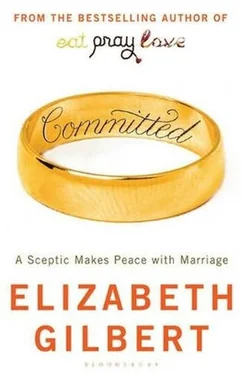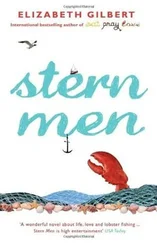I even understand why people feel it’s so important to witness each other’s ritualistic ceremonies. My father-not an especially conventional man by any means-was always adamant that we must attend the wakes and funerals of anyone in our hometown who ever died. The point, he explained, was not necessarily to honor the dead or to comfort the living. Instead, you went to these ceremonies so that you could be seen-specifically seen, for instance, by the wife of the deceased. You needed to make sure that she catalogued your face and registered the fact that you had attended her husband’s funeral. This was not so you could earn social points or get extra credit for being a nice person, but rather so that the next time you ran into the widow at the supermarket she would be spared the awful uncertainty of wondering whether you had heard her sad news. Having seen you at her husband’s funeral, she would already know that you knew. She would therefore not have to repeat the story of her loss to you all over again, and you would be saved the awkward necessity of expressing your condolences right there in the middle of the produce aisle because you had already expressed them at the church, where such words are appropriate. This public ceremony of death, therefore, somehow squared you and the widow with each other-and also somehow spared the two of you social discomfort and uncertainty. Your business with each other was settled. You were safe.
This is what my friends and family wanted, I realized, when they were asking for a public wedding ceremony between Felipe and me. It wasn’t that they wanted to dress in fine clothing, dance in uncomfortable shoes, or dine on the chicken or the fish. What my friends and family really wanted was to be able to move on with their lives knowing with certainty where everybody stood in relationship to everybody else. This was what Mimi wanted-to be squared and spared. She wanted the clear assurance that she could now take the words “uncle” and “husband” out of air quotes and continue her life without awkwardly wondering whether she was now required to honor Felipe as a family member or not. And it was quite clear that the only way she was ever going to offer up her full loyalty to this union was if she could personally witness the exchange of legal vows.
I knew all this, and I understood it. Still, I resisted. The main problem was that-even after several months spent reading about marriage and thinking about marriage and talking about marriage-I was still not yet entirely convinced about marriage. I was not yet sure that I bought the package of goods that matrimony was selling. Truthfully, I was still feeling resentful that Felipe and I had to marry at all merely because the government demanded it of us. And probably the reason this all bothered me so deeply and at such a fundamental level, I finally realized, is that I am Greek.
Please understand, I do not mean that I am literally Greek, as in: from the country of Greece, or a member of a collegiate fraternity, or enamored of the sexual passion that bonds two men in love. Instead, I mean that I am Greek in the way I think. Because here’s the thing: It has long been understood by philosophers that the entire bedrock of Western culture is based on two rival worldviews-the Greek and the Hebrew-and whichever side you embrace more strongly determines to a large extent how you see life.
From the Greeks-specifically from the glory days of ancient Athens-we have inherited our ideas about secular humanism and the sanctity of the individual. The Greeks gave us all our notions about democracy and equality and personal liberty and scientific reason and intellectual freedom and open-mindedness and what we might call today “multiculturalism.” The Greek take on life, therefore, is urban, sophisticated, and exploratory, always leaving plenty of room for doubt and debate.
On the other hand, there is the Hebrew way of seeing the world. When I say “Hebrew” here, I’m not specifically referring to the tenets of Judaism. (In fact, most of the contemporary American Jews I know are very Greek in their thinking, while it’s the American fundamentalist Christians these days who are profoundly Hebrew.) “Hebrew,” in the sense that philosophers use it here, is shorthand for an ancient worldview that is all about tribalism, faith, obedience, and respect. The Hebrew credo is clannish, patriarchal, authoritarian, moralistic, ritualistic, and instinctively suspicious of outsiders. Hebrew thinkers see the world as a clear play between good and evil, with God always firmly on “our” side. Human actions are either right or wrong. There is no gray area. The collective is more important than the individual, morality is more important than happiness, and vows are inviolable.
The problem is that modern Western culture has somehow inherited both these ancient worldviews-though we have never entirely reconciled them because they aren’t reconcilable. (Have you followed an American election cycle recently?) American society is therefore a funny amalgam of both Greek and Hebrew thinking. Our legal code is mostly Greek; our moral code is mostly Hebrew. We have no way of thinking about independence and intellect and the sanctity of the individual that is not Greek. We have no way of thinking about righteousness and God’s will that is not Hebrew. Our sense of fairness is Greek; our sense of justice is Hebrew.
And when it comes to our ideas about love-well, we are a tangled mess of both. In survey after survey, Americans express their belief in two completely contradictory ideas about marriage. On one hand (the Hebrew hand), we overwhelmingly believe as a nation that marriage should be a lifetime vow, never broken. On the other, Greek, hand, we equally believe that an individual should always have the right to get divorced, for his or her own personal reasons.
How can both these ideas be simultaneously true? No wonder we’re so confused. No wonder Americans get married more often, and get divorced more often, than any other people in any other nation on earth. We keep ping-ponging back and forth between two rival views of love. Our Hebrew (or biblical/moral) view of love is based on devotion to God-which is all about submission before a sacrosanct creed, and we absolutely believe in that. Our Greek (or philosophical/ethical) view of love is based on devotion to nature-which is all about exploration, beauty, and a deep reverence for self-expression. And we absolutely believe in that, too.
The perfect Greek lover is erotic; the perfect Hebrew lover is faithful.
Passion is Greek; fidelity is Hebrew.
This idea came to haunt me because, on the Greek-Hebrew spectrum, I fall much closer to the Greek end. Did this make me an especially poor candidate for matrimony? I worried that it did. We Greeks don’t feel comfortable sacrificing the Self upon the altar of tradition; it just feels oppressive and scary to us. I worried about all this even more after I stumbled on one tiny but critical piece of information from that massive Rutgers study on matrimony. Apparently the researchers found evidence to support the notion that marriages in which both husband and wife wholeheartedly respect the sanctity of matrimony itself are more likely to endure than marriages where couples are perhaps a bit more suspicious of the institution. It seems, then, that respecting marriage is a precondition for staying married.
Though I suppose that makes sense, right? You need to believe in what you’re pledging, don’t you, for a promise to have any weight? Because marriage is not merely a vow made to another individual; that’s the easy part. Marriage is also a vow made to a vow. I know for certain that there are people who stay married forever not necessarily because they love their spouses, but because they love their principles. They will go to their graves still bound in loyal matrimony to somebody they may actively loathe just because they promised something before God to that person, and they would no longer recognize themselves if they dishonored such a promise.
Читать дальше












